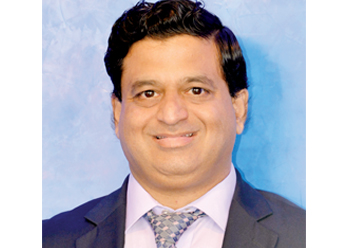What to expect from 2016

Experts from Sojern, provider of a data-driven traveller marketing platform, say that the top three destination countries for outbound Middle Eastern travellers remain the same in the first quarter of 2016 as they were in the first quarter of 2015 – namely, Turkey, the US and Germany.
However, new countries are entering the overall top ten, such as Italy, replacing the Philippines, which ranked seventh last year and is in the ninth place this year, France at number eight (bumping Egypt off the top 10 list) and Netherlands, also bumping the UAE off from the top ten.FAMILY HOLIDAYSOutbound family travel remains on the rise, with Turkey and the UAE as top origin and destination countries for family travellers. Saudi Arabia is seeing a 5 per cent increase in outbound family travel over the same quarter last year and the UAE a 2 per cent increase. Turkey is seeing a small 3 per cent dip in outbound family travel, but remains the undisputed number one – 41 per cent of total outbound travel from Turkey is by families. Where are the families headed? Increasingly to the UAE, which now accounts for 44 per cent of Mideast family travellers (compare with 32 per cent last year), Turkey, and in smaller degrees to Saudi Arabia.Overall, the proportion of solo outbound travellers is slowly decreasing year-on-year, from 76 per cent to 72 per cent, in favour of more travel in groups of two – up four percentage points from 13 per cent last year.Compared to last year, Spain replaces Switzerland as a top 10 origin country for travel to the Middle East region, and the UK moves to the top position. Russia moves up three places to position five and so does France, to position six.
HIGH SPENDERS
 |
Hemant |
CRUISE BUSINESS
 |
Greg Abbott |
HALAL TOURISMIslam-compliant tourism is the fastest-growing sector of tourism in the world and countries are slowing beginning to tap into it. 'Halal tourism is expected to grow at a rate of 6 per cent per annum, which is much higher than the expected global tourism industry growth,' says Baheti. 'We are noticing a marked increase in countries and hotel chains announcing their plans to attract Muslim tourists. Malaysia, Indonesia, Turkey, the UAE, Saudi Arabia, Egypt and Lebanon are some of the popular destinations for Muslim travellers.'Other countries like Japan have also identified the need to cater for Muslim tourists. In preparation for the 2020 Olympics, Japanese airports are adding prayer rooms as well as halal restaurants,' he concludes.
By Rashi Sen
************************************************************************************************************************************
Top trends in 2016
IF 2015 was any example of how the market is changing both technologically, operationally as well as philosophically, then 2016 should be an incredibly interesting year, says Greg Abbott, partner at US-based technology consultancy firm DataArt. He shares additional insight:
• Massive consolidation in the travel industry, which began in 2014, accelerated to a fevered pace in 2015. Sabre Hospitality acquired Trust International, TripAdvisor looked towards the tour space by acquiring Viator. Expedia acquired Orbitz and HomeAway. Marriott purchased Starwood and Accor announced the buyout of FRHI. All of this provides a glimpse into the crystal ball regarding what we should expect for 2016.
• In 2016, we will see online travel agencies (OTA’s) shift focus to alternative revenue sources from their old reliable revenue streams such as bookings and advertising: think table reservations, activities and vacation rentals. While some of these ancillary revenue opportunities already exist, we will see an intelligent, integrated offering to deliver a better consumer experience that ultimately drives more revenues. Travellers are not currently thinking about their dinner reservations while they are booking their hotel or airfare however in a holistic travel sales environment, we will see the convergence of all trip elements and the big players will own the customer through the entire trip process.
• Similarly, large hotel chains are looking for opportunities to get closer to their customers along the decision and booking path (remember, they get little to no details when a booking occurs at an OTA). Hotels continue to see a decline in direct bookings. Pressure from Airbnb, HomeAway and other sites are scaring the hotel industry and this growth of this new channel of inventory is expected to continue.
• Both supplier and agent are now squarely focused on the threat alternative lodging such as Airbnb poses. Airbnb sells more ‘nights’ than any of the global hotel chains. OTA’s have quickly moved into the vacation rental sector, with Expedia acquiring HomeAway.
• Personalisation will remain top of mind in 2016 and companies with the most data will have the best chance at delivering personalised service. However, companies that deliver these personalised solutions to the travel industry will have to tread carefully to ensure that they do not become too intrusive.
• The big players are all spending to gain market share in 2016. Google recently stepped into the hotel direct booking business. Some of the larger enterprise resource planning companies such as Oracle and SAP all have travel and hospitality divisions and they now have seen the light that there is real money to be made in this industry.
